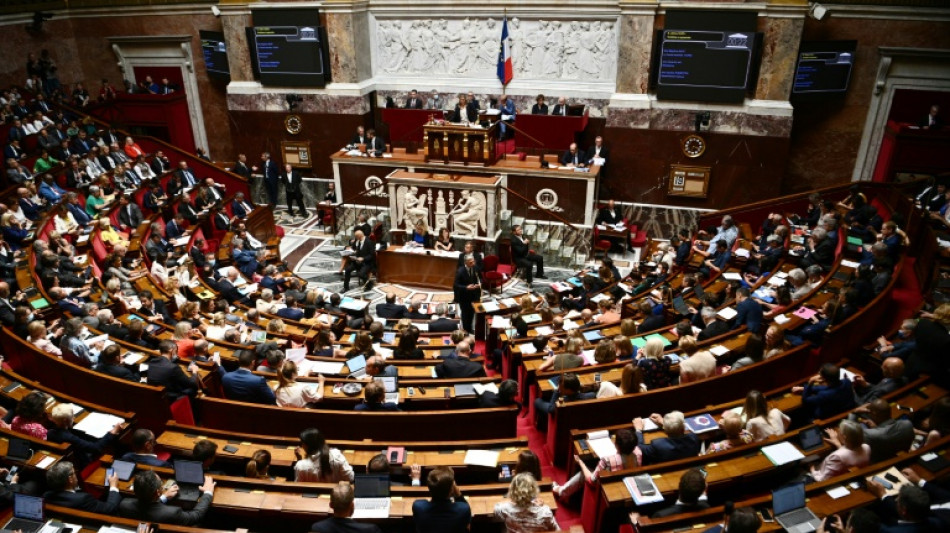

France's hung parliament passes 20-bn-euro inflation package
France's divided parliament on Friday passed its first major piece of legislation since elections last month, greenlighting a 20-billion-euro ($20-billion) package to help low-income families struggling with inflation.
The vote in the early hours of the morning provided a boost for the centrist government of President Emmanuel Macron, which is 39 seats short of a majority and was desperate to show it could build consensus.
The so-called "emergency purchasing power bill" passed with 341 MPs in favour, 116 against and 21 abstentions in a vote that took place shortly before 6:00 am (0400 GMT).
"Building majorities for projects to provide real solutions to the French people: we succeeded," Prime Minister Elisabeth Borne wrote on Twitter.
Far-right leader Marine Le Pen's National Rally party and the rightwing Republicans both voted in favour, while most leftwing MPs were opposed.
The legislation includes a range of measures designed to help consumers, such as extending fuel tax cuts, raising pensions and benefits, and capping rent increases.
It also gives the government powers to tackle a looming energy crisis caused by the fallout of Russia's invasion of Ukraine.
One of the most controversial measures authorises the state to reopen a coal-fired power station in eastern France in the event of power shortages this winter.
"The return of coal is not good news," admitted Maud Bregeon from Macron's Republic on the Move party, defending it as a "temporary" response to "an exceptional situation."
The bill will now go before the Senate where it is expected to pass.
- 'Kiss of death?' -
French politics has been cast into an unusual period of instability following parliamentary elections last month that saw Macron lose his majority just two months after being re-elected for a second term.
The government suffered its first defeat in mid-July when opposition parties voted down a proposal to oblige travellers to show proof of vaccination against Covid-19.
The first fortnight of debates has been frequently bad-tempered, with one ruling MP saying the assembly had "an atmosphere like a football match".
Far-right leader Marine Le Pen, whose RN party increased its number of seats 10-fold in the elections, has sought to portray her bloc of MPs as a responsible opposition force.
"We as RN members of parliament have clearly understood the message from the French people," she said earlier this week. "They don't want obstructionism, but constructive work."
She has ordered her MPs to dress smartly while in parliament -- part of her decade-long quest to change the image of her once-marginal party that was long associated with racism.
"The truth is that by voting for these bills, the National Rally is giving us the kiss of death," a Macron ally admitted to Le Figaro newspaper this week.
A new poll published Friday showed that most French people -- 58 percent -- thought the hung parliament was a good thing, up two percentage points.
Macron and Borne also benefited from a rise in popularity over the last month, the survey from the BVA polling group showed.
A total of 43 percent of respondents viewed Macron favourably, up five points since June, and 49 percent had a positive opinion of Borne, a gain of eight points.
Although the cost-of-living bill passed with a wide majority, analysts say other pieces of planned legislation, such as pension reform, will be far more difficult.
Another vote to authorise an emergency budget to fund the cost-of-living package will follow, with debates possibly this weekend.
adc-parl-adp/ach
P.Russo--IM




